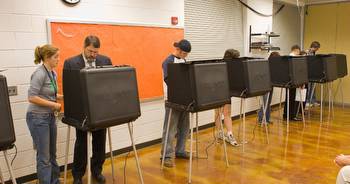From Cherokee to Coastal: The diversity of gambling options in the USA

The United States offers a vibrant mosaic of gambling options, ranging from Cherokee's historical gaming floors to the bustling coastal casinos that grace Atlantic City and Las Vegas. The diversity is not just geographical but also legal and cultural, offering a rich tapestry of gaming experiences that cater to every preference and style.
With the legalization of online sports betting across various states, the American gambling landscape has undergone a major shift, broadening the horizons for fans. The online platforms have enriched the array of betting options and marked a key moment in how sports betting integrates into mainstream entertainment and sports culture. States have adopted unique approaches to incorporating this form of betting, reflecting the diverse ethos and legislative frameworks that characterize the nation.

The Federal Framework and Its Impact
The U.S. federal government has played a pivotal role in shaping the gambling industry with several key pieces of legislation. The Federal Wire Act of 1961, initially aimed at curbing organized crime's use of telecommunications for gambling, has been interpreted over the years to cover internet-based gambling services.
Further complicating the landscape, the Professional and Amateur Sports Protection Act (PASPA) of 1992, which was overturned in 2018, previously restricted sports betting to Nevada. Its repeal has sparked a surge in state-level legislation, opening the door for a burgeoning sports betting industry across numerous states. Meanwhile, the Unlawful Internet Gambling Enforcement Act (UIGEA) of 2006 focused on payment processing for online gambling, further muddying the waters for online casinos and their customers.
State-level Dynamism
At the state level, the approach to gambling varies significantly, with each state wielding the authority to legalize and regulate different forms of gambling within its borders. This has led to a patchwork of regulations, with some states embracing online gambling and others maintaining strict prohibitions.
States like New Jersey and Pennsylvania have been at the forefront of legalizing online casinos, offering a comprehensive range of gambling options, including poker, sports wagering, and online slots. These states have established regulatory frameworks that ensure the safety and fairness of online gambling, serving as models for others considering legalization.
Conversely, states such as Hawaii and Utah have remained steadfast in prohibiting all forms of gambling, underscoring the country's wide spectrum of regulatory philosophies.
The Rise of Online Gambling
The rise of online gambling in the United States has introduced a wide range of options for enthusiasts, from online casinos and poker rooms to sports betting and lotteries. The regulatory landscape varies significantly across states, with each state adopting its approach to legalization and regulation.
Online casinos have flourished in states like Delaware, Michigan, New Jersey, Pennsylvania, and West Virginia, offering a wide selection of games, including slots, blackjack, roulette, and more. These platforms are subject to state laws ensuring player protection and fair play, providing gamblers with a safe and regulated environment. In addition to classic casino games, many online casinos offer live dealer games, enhancing the gambling experience with real-time interactions.
Sports betting, another significant aspect of online gambling, has seen widespread adoption following the repeal of PASPA in 2018. States like Tennessee have embraced an online-only model, eliminating the need for physical betting locations. It has expanded sports betting access, allowing bettors to place wagers on various sporting events from the comfort of their homes or on the go through mobile apps.
In addition to traditional sports, online platforms also offer betting on eSports, virtual sports, and other novel categories, catering to a broad spectrum of preferences.
Moreover, offshore online gambling remains available in most states, providing an alternative to state-regulated platforms. These offshore sites offer a range of gambling activities, including casino games, poker, and sports betting, often with fewer restrictions and lower minimum age requirements. While navigating the online gambling landscape can be complex due to varying state laws and regulations, the proliferation of legal online gambling options has significantly enhanced the accessibility and diversity of gambling activities available to US residents.
Conclusion
The gambling landscape in the USA is characterized by its diversity and complexity, shaped by a blend of historical legislation and contemporary regulatory shifts. As states navigate the intricacies of legalizing and regulating different forms of gambling, the industry continues to evolve, reflecting American society's changing preferences and values.



































